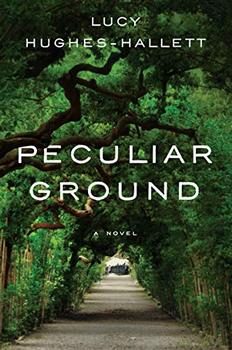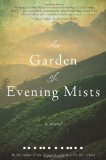
In Search of a Common Paradise
by Olivia LaingInspired by the restoration of her own garden, "imaginative and empathetic critic" (NPR) Olivia Laing embarks on an exhilarating investigation of paradise.
In 2020, Olivia Laing began to restore an 18th century walled garden in Suffolk, an overgrown Eden of unusual plants. The work brought to light a crucial question for our age: Who gets to live in paradise, and how can we share it while there's still time? Moving between real and imagined gardens, from Milton's Paradise Lost to John Clare's enclosure elegies, from a wartime sanctuary in Italy to a grotesque aristocratic pleasure ground funded by slavery, Laing interrogates the sometimes shocking cost of making paradise on earth.
But the story of the garden doesn't always enact larger patterns of privilege and exclusion. It's also a place of rebel outposts and communal dreams. From the improbable queer utopia conjured by Derek Jarman on the beach at Dungeness to the fertile vision of a common Eden propagated by William Morris, new modes of living can and have been attempted amidst the flower beds, experiments that could prove vital in the coming era of climate change. The result is a humming, glowing tapestry, a beautiful and exacting account of the abundant pleasures and possibilities of gardens: not as a place to hide from the world but as a site of encounter and discovery, bee-loud and pollen-laden.
Gardening is as much an intellectual endeavor for Laing as it is a physical one, and the roots of her thinking run deep. She makes room in this expansive book for figures ranging from the Greek historian and philosopher Xenophon to Toni Morrison, but the greatest space is given over to micro-biographies of those who, like herself, have sought to plant paradise. Between vignettes from her own struggles, Laing introduces figures like John Clare, the 19th-century "peasant poet" who captured the natural world in verse; Iris Origo, the heiress whose Italian estate turned refugee camp in the Second World War; and Capability Brown, the landscape architect whose vision of rolling hills and untouched valleys reshaped the English countryside. All these disparate parts undoubtedly give the The Garden Against Time a loose feel, but Laing is skillful enough to gather her anecdotes into satisfying bouquets. Indeed, her taste in prose certainly matches her taste in flora; the writing is overabundant and knotty, but always hovering on the right side of unmanageable...continued
Full Review
 (822 words)
(822 words)
(Reviewed by Alex Russell).
.jpg) In The Garden Against Time, Olivia Laing traces the evolution of gardens and the different meanings they have taken on in society. One major European development she addresses is the work of Capability Brown and the advent, in the mid-18th century, of a style that came to be known simply as the English garden.
In The Garden Against Time, Olivia Laing traces the evolution of gardens and the different meanings they have taken on in society. One major European development she addresses is the work of Capability Brown and the advent, in the mid-18th century, of a style that came to be known simply as the English garden.
Lancelot "Capability" Brown was born in 1716. The son of a land agent and a chambermaid, he started his career as an under-gardener at Stowe House, a stately home not far from Oxford, before quickly climbing the ranks to become head gardener of the estate in his mid-20s. By this time, a certain aesthetic ideal was starting to bloom in the gardens of England's aristocracy. Every earl and baron in the country dreamed of ...

If you liked The Garden Against Time, try these:

by Lucy Hughes-Hallett
Published 2019
The Costa Award-winning author of The Pike makes her literary fiction debut with an extraordinary historical novel in the spirit of Wolf Hall and Atonement - a great English country house novel, spanning three centuries, that explores surprisingly timely themes of immigration and exclusion.

by Tan Twan Eng
Published 2012
Malaya, 1951. Yun Ling Teoh, the scarred lone survivor of a brutal Japanese wartime camp, seeks solace among the jungle-fringed tea plantations of Cameron Highlands. There she discovers Yugiri, the only Japanese garden in Malaya, and its owner and creator, the enigmatic Aritomo, exiled former gardener of the emperor of Japan.